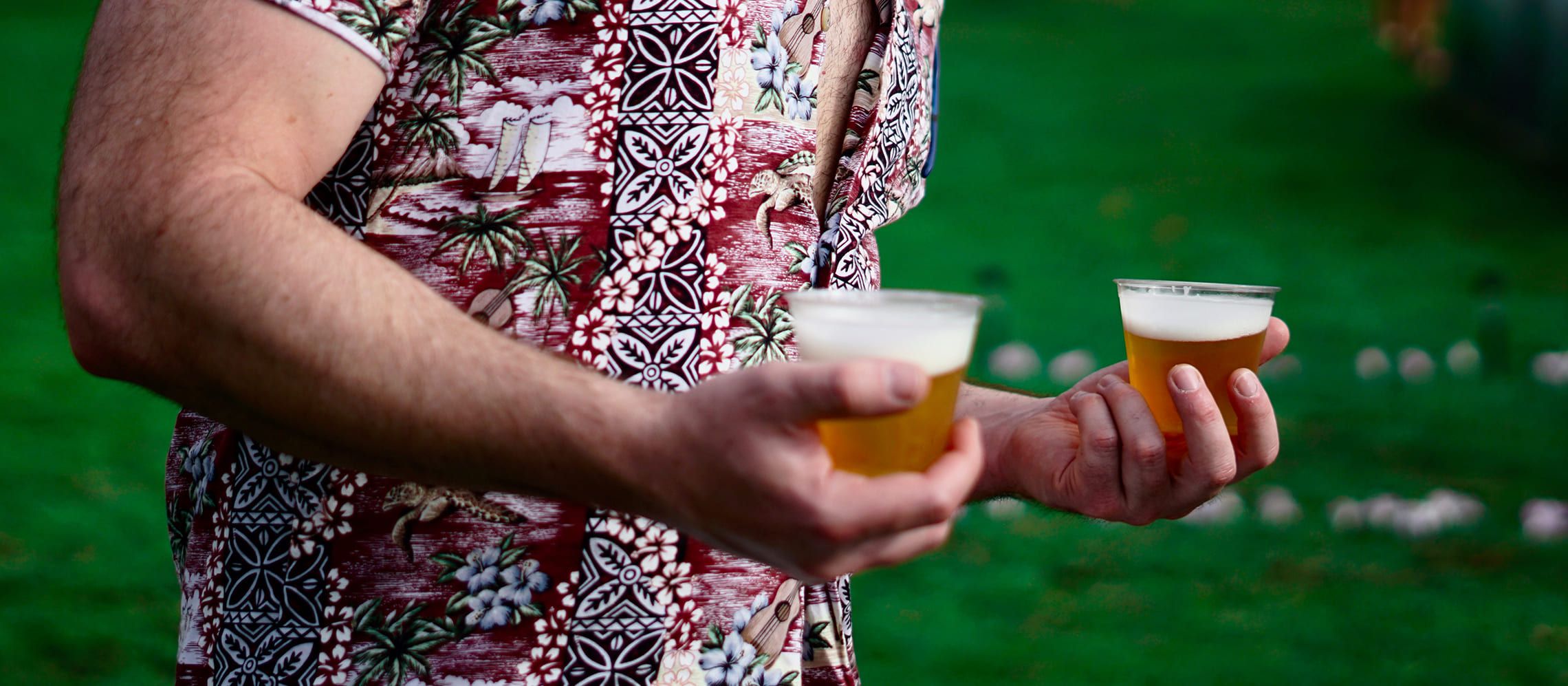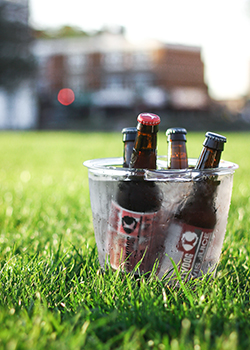Submission Deadline
28 February 2026
Judging
Date
23 March 2026
Winners Announcement
22 April 2026
28 February 2026
23 March 2026
22 April 2026

The demand for strictly plant-based products has never been greater, and while the focus clearly lies on food and fashion, the drinks industry is now catching up in order to serve those who choose the vegan path.
Making the conscious decision to give up meat and dairy on moral grounds might be an honourable thing to do, and while vegans fairly quickly manage to get their diet sorted and also have a big range of plant-based fashion items to choose from, the drinks section has been a bit of a stepchild so far. Some people simply fail to consider vegan-friendly drinks in their diets, and we are not talking dairy-free milk, but alcohol. A reason for this is that many people don't really know what certain types of alcohol are made of, or better, what is used in the production process.
One of them is beer. There is a big chance that the average beer drinker regularly sups on non-vegan brew without even realising it.

Especially beer lovers from countries with a long-standing brewing history like Germany, Austria or the Czech Republic might state – but isn't beer just made from water, malted barley or wheat, yeast and hops? Yes, if you follow the strict German Purity Law – Reinheitsgebot – which decrees that beer must only contain the above-mentioned ingredients. There you have it, unfiltered purity.
This law dates back to the year 1516 and many traditional breweries have been sticking to it ever since. The belief back in a day was that live yeast was fundamental to beer - improving aroma, flavour and mouthfeel and that by leaving a small amount of yeast in suspension it heightens all of these qualities, and allows the drinker to see the soul of the beer. In the vegan context, it seems that this holistic approach was somewhat ahead of its time.
So all beer would have been naturally hazy, but over time as techniques and equipment changed, beer gradually became clearer and as such the public’s expectation changed. By the 19th century, many brewers thought that occlusions of any sorts in a beer were unattractive and therefore began filtering their beers. And that put an end to early vegan beer.
Let's discuss what breweries used since then to clarify their beer. One product is gelatine. Most of us know that gelatin is made from bone, skin, and tissue extracts. Clearly not vegan-friendly, but also not the most common ingredient to remove haze.
The number one fining is isinglass – a paste-like substance made from the dried fish bladder which is injected into the beer casks. The leftover yeast and sediment will cling to the paste, which is then removed, clarifying the beer. So technically seen it is not considered an ingredient in the traditional sense as it falls out of the beer and doesn't make it into the final product, but, by vegan standards, it is, as there are always traces and tiny particles of ...well...fish that remain.
The important thing here is, that it is not mandatory to mention the fining agent on the label so most consumers are left in the dark, whether they are gobbling down on fish when they think, they are just having a beer.
It needs to be mentioned though that some non-vegan beer is easy to spot as soon as you look at the name. Recipes that use honey and milk, two common flavour additives, typically celebrate this fact right upfront.
So facing the vegan trend today's breweries usually follow two different approaches:
The first one is to substitute isinglass with vegan-friendly finings such as Irish moss or seaweed.
The second is the use of modern technology that has also come up with countless new filtering techniques to clear up a cloudy beer without the need for fish bladder paste. Most newly established craft breweries use their modern machinery instead of additives to refine their product.
But more and more brewers are convinced that there is actually no need for beer not to be vegan and brew according to the before-mentioned purity law. They argue it's not just good for vegans - the beer actually tastes better.
You can actually see a shift from crystal clear brews to unfined beers with their cloudy appearance which is seen as a mark of quality rather than being associated with poorly-kept beer.
The intense and genuine flavour of unfined beer has won over drinkers, both vegan and non-vegan and there is definitely more of a thirst for it now.
And it makes sense – breweries want to make sure as many people as possible can enjoy their beers. It is a massive plus for the more conscious consumer as there are still many beers out there that are not suitable for vegans and it is important to be able to give consumers more choice.
The beer movement of the past years has clearly changed the thinking of many producers and smart brewers know that they are dealing with a more specialized market these days.
And whereas in other industries it requires a lot of investment, equipment, technology and whatnot, to change a product – it is the opposite here – cutting down to the mere basics and going back to the roots when it comes to ingredients and production steps is all it takes. The results speak for themselves. So does the fact that for a change it is nice to see vegans and non-vegans slugging down the same thing with joy and good conscience.
Show your beers where it matters. Get your products tasted by top buyers and experts at the London Competitions — enter now.